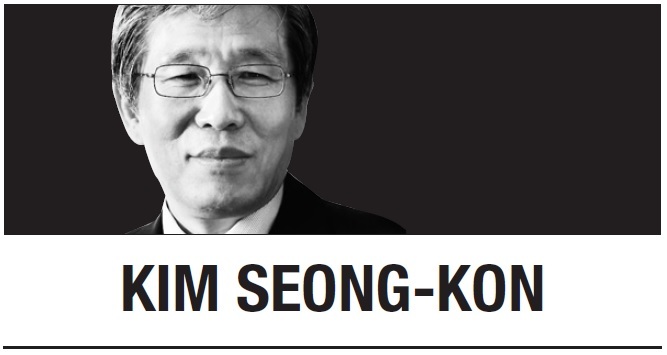As the new government has launched, the season of National Assembly hearings for Cabinet members has come again. As expected, controversial issues such as plagiarism, aggressive real estate investment and income sources are at the forefront of the discussion.
The most contentious issue is what Koreans call “parent chance,” which refers to advantages that children receive from parents in influential positions in society. In many other countries, it is only natural for parents to help their children in every possible way, unless they break the law or cross the line into morally objectionable areas. In Korea, however, the people’s sentiment forbids virtually any advantage from parents, regardless of legality. It is especially the case when the parent’s influence has something to do with their child’s admission to college or in getting a job.
Therefore, it is a sphinx’s riddle for the Korean people that previous US President Donald Trump appointed his daughter and son-in-law as senior advisers in the White House. In American culture, there is no such thing as “guilt by family connection,” so it is wrong if a person has disadvantages because of his or her parents. That is why in American society, one can become a police officer even though his father is doing time in prison. Perhaps Trump either took advantage of such a social custom or thought that a country was like a big business corporation run by a family.
However, Korean culture is quite different. If a Korean president hired his daughter and son-in-law as senior advisers, it would be quite scandalous. The Korean people would not allow such nepotism and perhaps the president would face impeachment.
Some time ago, Seoul National University administered the Test of English Proficiency developed by Seoul National University, or TEPS. At the time, the policy was that anyone who received a high score could secure admission to Seoul National University. Therefore, many high school seniors took advantage of the policy and succeeded in entering SNU.
At that time, one of my colleagues at SNU supervised TEPS. His daughter, too, was a high school senior. Her English was fluent enough because she had been educated in the US when she was young. Thus, she could enter SNU easily by submitting a high score. Yet, he asked his daughter not to do so because he was in charge of overseeing TEPS. He thought that people might think his daughter unjustly used her “father’s chance,” even though systematically there was nothing he could do to help her. Even though she complied with her father’s decision, his daughter might have thought it was unfair because she had to give up the rare chance because of her father.
I do not think that Korean society has higher moral standards than other countries. It is more likely that Koreans apply strict rules to those who run for high offices. Indeed, high-ranking government officials should be morally exemplary. It is also likely that the lawmakers who belong to the opposition party use the hearings for political revenge by looking to exploit whatever faults they can find. Thus, they become suspicious of the Cabinet minister candidates, regardless of their expertise or competence.
Of course, we might say it is necessary to hold such hearings in order to prevent corrupt, incompetent people from occupying high government posts. The irony is that we may not be able to find able and competent candidates in the first place if we ruthlessly expose the candidates’ private lives and humiliate their families in public. It is likely that a truly able man may shun the nomination in order to protect the reputation of his family. That is why there is a humorous saying in Korea, “Under the current brutal hearing system, only incompetent people can be appointed Cabinet ministers because they have done nothing in the past.”
Watching the Korean National Assembly hearings, a foreign political analyst wrote, “This process seems to put all of the emphasis on the trustworthiness of the candidates, rather than their qualifications. In such a politically polarized time, people only ‘trust’ those who share their belief system or ideology. Thus, progressives will only trust members of their own party, etc. This creates a ‘vicious circle’ where only incompetent people are willing and able to go through with the nomination process.”
Thus, the “vicious circle” continues, and with clicking tongues and heavy sighs, we keep watching the fall of Cabinet candidates. Sometimes, it inadvertently ruins the reputation of a candidate’s family permanently by disgracing it publicly. Instead of finding faults, our lawmakers should check if they are truly able and capable for the designated post.
Nobody is perfect. We can only hope to find the most suitable person for running the country with outstanding skills and dedication.
Kim Seong-konKim Seong-kon is a professor emeritus of English at Seoul National University and a visiting scholar at Dartmouth College. The views expressed here are his own. -- Ed.
By Korea Herald (
khnews@heraldcorp.com)






![[Herald Interview] 'Trump will use tariffs as first line of defense for American manufacturing'](http://res.heraldm.com/phpwas/restmb_idxmake.php?idx=644&simg=/content/image/2024/11/26/20241126050017_0.jpg)
![[Exclusive] Hyundai Mobis eyes closer ties with BYD](http://res.heraldm.com/phpwas/restmb_idxmake.php?idx=644&simg=/content/image/2024/11/25/20241125050044_0.jpg)
